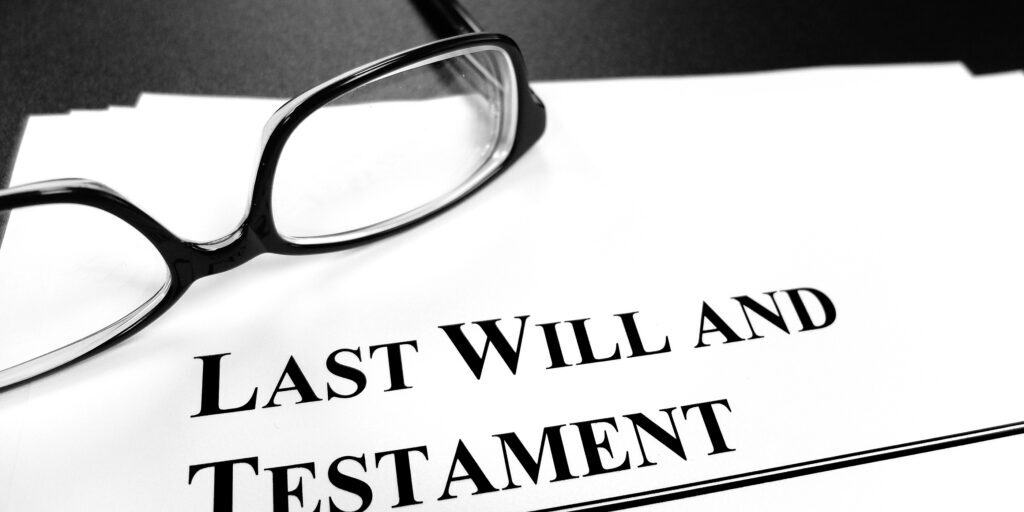Navigating the Legacy: A Comprehensive Guide to Wills and Planning

Navigating the Legacy: A Comprehensive Guide to Wills and Planning
Introduction
Creating a will is a vital aspect of responsible financial and familial planning. Often overlooked or postponed, the process of drafting a will is a crucial step in ensuring that your assets are distributed according to your wishes, minimizing the burden on your loved ones during what can already be a challenging time. In this comprehensive guide, we will delve into the intricacies of wills, exploring their importance, the key components of a well-crafted will, the different types of wills, and the broader context of estate planning.
Understanding the Importance of Wills
A. Providing Clarity and Avoiding Conflict:
- A will serves as a legally binding document that outlines how your assets should be distributed after your passing.
- Without a will, your estate may be subject to intestacy laws, which could result in assets being distributed in a way that contradicts your wishes.
- A well-drafted will helps prevent family disputes and minimizes the potential for conflicts among heirs.
B. Designating Guardianship for Dependents:
- Parents with minor children can use a will to designate guardianship in the event of their untimely death.
- This ensures that the care of the children is entrusted to individuals whom the parents have chosen and deemed suitable for the role.
C. Managing Estate Taxes:
- Strategic estate planning, often facilitated through a will, can help minimize the impact of estate taxes on the assets passed down to beneficiaries.
- Understanding tax implications and utilizing available exemptions can maximize the inheritance for your loved ones.
Key Components of a Well-Crafted Will
A. Executor Appointment:
- Naming an executor is a critical decision in the will-making process. This individual is responsible for overseeing the distribution of assets, settling debts, and handling the legal aspects of the estate.
- The executor should be someone trustworthy, organized, and capable of managing financial matters.
B. Asset Inventory and Distribution:
- Clearly list all assets, including real estate, investments, bank accounts, and personal belongings.
- Specify how each asset should be distributed among beneficiaries, whether it be family members, friends, or charitable organizations.
C. Guardianship Provisions:
- For parents with minor children, the will should explicitly name a guardian and, if necessary, a backup guardian.
- Provide instructions regarding the financial support and upbringing of the children, including any trusts or funds set aside for their education and well-being.
D. Debt Settlement:
- Clearly outline how outstanding debts, such as mortgages, loans, or credit card balances, should be settled from the estate.
- Be mindful of the impact of debt on the overall value of the estate and its distribution.
E. Funeral and Burial Preferences:
- Express your wishes regarding funeral arrangements, cremation or burial preferences, and any specific requests you may have for your final arrangements.
- While not legally binding, these preferences can guide your loved ones in honoring your wishes.
Types of Wills
A. Simple Will:
- A basic will that is suitable for individuals with uncomplicated financial situations.
- Typically includes the key components mentioned earlier and is relatively straightforward to create.
B. Testamentary Trust Will:
- Involves the creation of trusts within the will, allowing for more complex asset distribution.
- Useful for individuals with substantial assets, providing flexibility and control over how assets are managed and distributed over time.
C. Living Will:
- Also known as an advance directive, a living will outlines your preferences regarding medical treatment in the event of incapacitation.
- Addresses issues such as life support, organ donation, and other medical interventions.
D. Joint Will:
- A single will created by two individuals, often spouses, that outlines how their joint assets will be distributed.
- While less common, joint wills can simplify the process for couples with similar wishes.
Estate Planning Beyond the Will
A. Power of Attorney:
- Designate someone to make financial or medical decisions on your behalf in the event of incapacity.
- Ensures that someone you trust has the authority to manage your affairs if you are unable to do so.
B. Living Trusts:
- Establishing a living trust allows for the transfer of assets outside of probate, potentially expediting the distribution process.
- Provides greater privacy compared to a will, as trusts are not publicly disclosed.
C. Beneficiary Designations:
- Certain assets, such as life insurance policies, retirement accounts, and bank accounts, allow for the designation of beneficiaries.
- Ensure that beneficiary designations align with your overall estate plan and are regularly updated to reflect changes in circumstances.
D. Charitable Giving:
- Consider incorporating charitable contributions into your estate plan through specific bequests in the will or the establishment of a charitable trust.
- This allows you to support causes you care about while potentially receiving tax benefits.
The Importance of Regular Review and Updates
A. Life Changes:
- Significant life events, such as marriage, divorce, the birth of children, or the death of a loved one, should prompt a review of your will.
- Ensure that your will reflects your current circumstances and preferences.
B. Changing Laws and Regulations:
- Estate and inheritance laws may evolve over time, impacting the effectiveness of your will.
- Regularly consult with legal professionals to stay informed about changes that may necessitate updates to your estate plan.
C. Family Dynamics:
- Relationships among family members may change, potentially influencing your decisions regarding asset distribution.
- Open communication with family members and legal advisors can help address any potential challenges.
Conclusion
Creating a will is an essential component of responsible financial and familial planning. By understanding the importance of wills, the key components of a well-crafted will, the different types of wills, and the broader context of estate planning, individuals can navigate the process with clarity and purpose. Estate planning extends beyond the will, encompassing tools such as powers of attorney, living trusts, beneficiary designations, and charitable giving. Regular reviews and updates ensure that your estate plan remains aligned with your wishes and adapts to changes in your life, the law, and family dynamics. By taking proactive steps to secure your legacy, you provide your loved ones with the guidance and support they need during what can be a challenging time.
